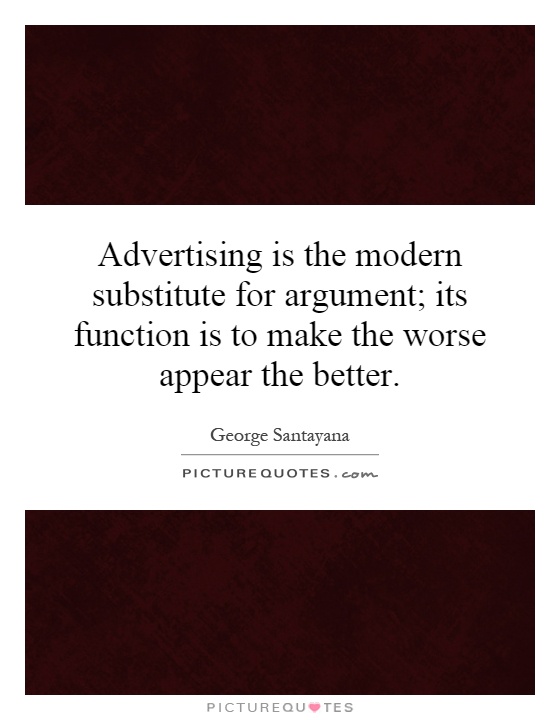Advertising is the modern substitute for argument; its function is to make the worse appear the better

Advertising is the modern substitute for argument; its function is to make the worse appear the better
George Santayana, a renowned philosopher and essayist, once famously said, "Advertising is the modern substitute for argument; its function is to make the worse appear the better." This statement holds true even in today's society, where advertising plays a significant role in shaping consumer perceptions and influencing purchasing decisions.In the world of marketing, the primary goal of advertising is to persuade consumers to buy a particular product or service. Advertisers often use various tactics to make their products seem more appealing than they actually are. This can include exaggerating the benefits of a product, using misleading statistics, or creating a sense of urgency to encourage impulse buying.
Santayana's assertion that advertising is a substitute for argument suggests that advertisers rely on emotional appeals rather than logical reasoning to convince consumers to make a purchase. By creating a compelling narrative or appealing to consumers' desires and insecurities, advertisers can manipulate their audience into believing that a particular product is superior to its competitors.
Furthermore, Santayana's statement implies that advertising can distort reality and create a false sense of value. In a world where image is everything, advertisers often focus on creating a perception of luxury, exclusivity, or desirability around their products, regardless of their actual quality or utility. This can lead consumers to make purchasing decisions based on superficial factors rather than objective criteria.
Moreover, the proliferation of digital advertising and social media has made it easier for advertisers to target specific demographics and tailor their messages to individual preferences. This personalized approach can make it even more challenging for consumers to discern between genuine information and persuasive marketing tactics.












 Friendship Quotes
Friendship Quotes Love Quotes
Love Quotes Life Quotes
Life Quotes Funny Quotes
Funny Quotes Motivational Quotes
Motivational Quotes Inspirational Quotes
Inspirational Quotes